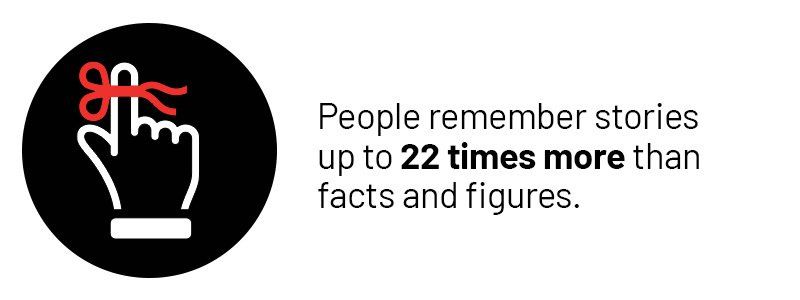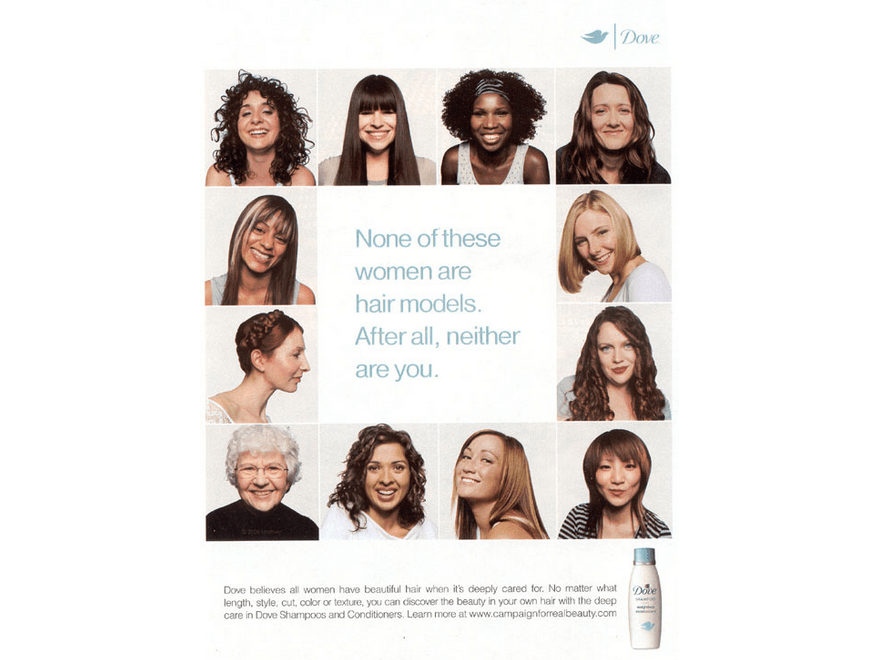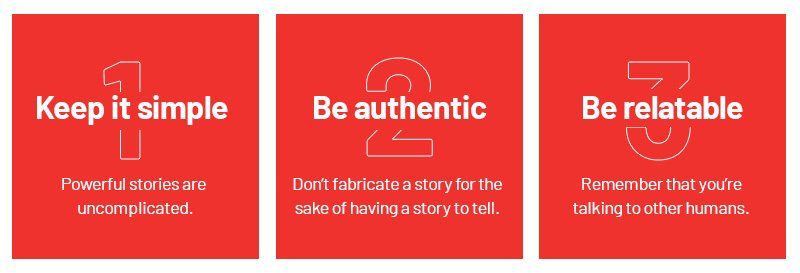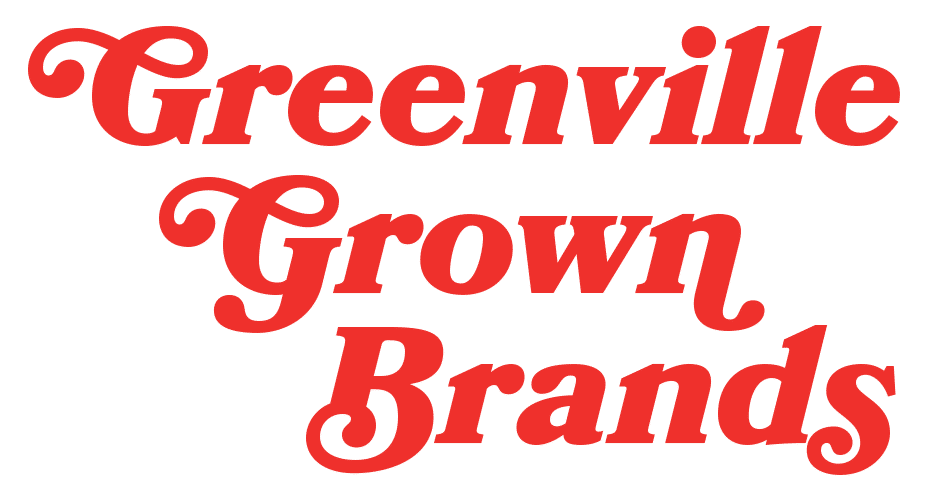As humans, we’re naturally drawn to stories. We connect with characters, empathizing with their struggles and celebrating their achievements. We applaud heroes and shun villains. Stories evoke emotions that stay with us. That’s why we can recite lines from our favorite movies and summarize the plot of our favorite books.
We communicate and connect through stories with our friends, family, and colleagues, and it’s no different with brands.
People build connections with brands because they experience emotions. Think of all the passionate debates about how strongly people feel about one brand over another: Coke or Pepsi, Ford or Chevrolet, Burger King or McDonald’s, Apple or Microsoft. That’s fueled by pure emotion.
Through brand storytelling, you connect with your audiences on an emotional level and create brand loyalists for life.
Your brand story is the narrative that shapes and communicates the essence of your brand to your customers, employees, partners, and the world. It’s what makes you different. Disney makes movies and has theme parks, but its brand essence is “To create happiness through magical experiences.” The Coca-Cola Company makes beverages, but its brand essence is “Refresh the world. Make a difference.” Walmart is a discount retailer focused on making people feel smart about saving money on everyday items, ultimately making their lives better, as its new slogan “Save Money. Live Better.” states.
“Marketing is no longer about the stuff that you make
but about the stories you tell.”
– Seth Godin
Why is storytelling important for your brand?
Without a story, it’s hard to connect with your target audience on an emotional level. And without that connection, it’s almost impossible to grow and thrive. Consumers want to be part of something bigger than your brand, and when you’re just another faceless, characterless entity, there’s no connection and no reason to choose you over your competition. At the end of the day when all the research is done and costs, features, and options have been compared, it’s the emotions that drive the final purchase decision more than logic.
Here are four benefits of brand storytelling:
1. Brings your brand to life
Consumers need to know more than what products or services you sell. They need to know why you sell them and the people and processes behind them. By knowing why you do what you do – and that you’re good at what you do – you create authenticity and trust. By telling your “why” through stories, you are humanizing your brand and bringing it to life.
2. Sets you apart
As consumers, we’re hit with so many messages it can be overwhelming. From ads that pop up online and billboards on your commute; commercials on the radio, TV, or streaming service where you get your music and entertainment; constant emails in your inbox; and the articles, news, memes, and videos your friends, family, and colleagues share with you on an hourly basis… it’s never ending. It’s content shock.
How can a brand survive – and thrive – this content overload? Breakthrough with a story. Let your customers know your unique qualities, values, and characteristics. Let your true personality shine through and set you apart from competitors vying for consumers’ attention.

3. Makes you memorable and likable
People remember stories up to 22 times more than facts and figures. While facts and figures may be important in selling your product or service, weave them into a story about how a customer’s life was transformed. Good stories capture attention, inspire engagement, and compel action. Be worth remembering through storytelling.
4. Attracts the right people
Just like we’re attracted to different attributes in humans, the same is true for brands. Let consumers get to know your brand’s personality and values and build a relationship based on those shared values. As you look to grow your audience, a good brand story will appeal to and attract those who are a good fit for your brand.
As the world-famous author Maya Angelou stated, “People will forget what you said, people will forget what you did, but people will never forget how you made them feel.” Stories evoke emotion and make people feel a part of something.
How do you tell your brand story?
Storytelling through content marketing is an excellent way to attract and engage with consumers. But where do you start and how do you tell stories that are unique, authentic, and interesting?
Start by putting storytelling at the heart of your marketing strategy and recognizing that every communication has the potential to tell a story and support your mission, vision, and values. Each touch point, from your website and sales materials to your social media posts and enewsletters, is an opportunity to tell your brand story.
Start with your brand archetype.
Once you know your brand archetype and have identified your brand principles, your brand voice and personality come to life. If your archetype is the Explorer like Patagonia, you can tell stories of adventure and journey that appeal to your customers. Or if you’re more of an Outlaw like Harley Davidson, your stories could share the desire of liberation. Or you could be a Jester like M&Ms and tell stories of fun and pleasure.
Knowing your brand archetype sets the tone for your brand story.
Know your audience.
If you don’t have personas for your brand, this is a good reason to create them. It’s easier to tell stories when you have a clearly defined buyer persona and can create a story that relates to real humans with certain interests, challenges, needs, and wants.
What are their pain points? Where do they consume information? What will resonate with them? How do you want them to feel about your brand?
Brainstorm story ideas
Map out your customer’s journey. What need is driving them to seek out your product or service? What should they know at each step of the journey? Demonstrate how your brand can be their guide to help them and generate an emotional connection along the way.
- How are you different from the competition and why should that matter to your target audience? Do you have an interesting history? Who is your founder and what is her/his story? What about your commitment to quality? Your people and culture?
- How did a new product or service come to life? What’s the story behind its development through one of your employee’s eyes? How is it addressing your customers’ needs?
- Have you failed? Have you had to shift business strategies or redesign a product? Admit it. Be honest and tell the story behind a failure or redirect and what you learned from it. There’s nothing like a hard, honest story to earn trust.
- Take people behind the scenes. How does your team create a plan or develop a product? Where do you find your inspiration? How do you stay in touch with your customers’ needs to provide the best product/service?
- What stories illustrate your beliefs and values when it comes to customer service, quality, training, support, diversity, innovation, sustainability, etc.?
- What value do you provide? What do customers really receive when they choose you instead of the competition?
- How do you connect with your community or serve a greater purpose?
For some inspiration, here are a few examples of how major brands use storytelling to create emotions and connect with their audiences.
Top athletic brands don’t feature stories about how awesome their new shoes are. They tell stories about how athletes overcome challenges and achieve goals – how they won the game, scored the winning basket, or kicked the winning field goal. Their shoes, basketballs, and footballs are barely in the bigger story. Nike’s “Just Do It” message is more than 30 years old, and it’s the foundation of their brand story. It challenges their customers to strive for their best through stories of inspiration.
Link to Nike Video “Just Do It”
Dove is another strong example of a brand making an emotional connection with its target audience. Without even promoting its products, it is building relationships based on its passion for real beauty by celebrating the inner beauty and confidence of all women. The brand’s ads and marketing are centered around stories about real people, celebrating every type of woman and extending the story through the Dove Self-Esteem Project.

Airbnb stopped telling its story as a technology company and started telling their story like a hospitality brand. Through its brand essence “belong anywhere,” the company features stories of a community as told through its hosts and guests about travel experiences.
Here are three final tips for creating a good brand story:

- Keep it simple. Powerful stories are uncomplicated. Keep your story on point and focused on one core message.
- Be authentic. Don’t fabricate a story for the sake of having a story to tell. People will see right through it. Be truthful and honest.
- Be relatable. Remember that you’re talking to other humans. If you have personas for your brand, this is when they really come in handy. Tell your brand story as if you’re talking to them. Be real and avoid too much industry jargon.
Through powerful stories, you can bring your brand to life and better connect with your audience. Storytelling is an ongoing process, and there are many stories throughout your company waiting to be told. Talk to your sales team, HR, frontline workers, customers, partners, and executive team. Brand storytelling is an important part of who you are. If you need help defining your storytelling strategy, FUEL can help. Contact us today to chat.








